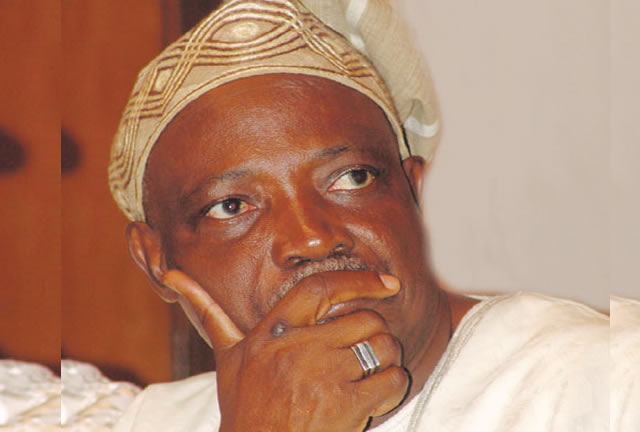
THE ongoing face-off between the
senior female national football team, the Super Falcons, and Nigeria’s
sports authorities over the non-payment of the players’ entitlements is a
self-inflicted national embarrassment the country could well have
avoided through adequate planning. It is an ironic situation that has
turned a moment of personal joy and national celebration into an
occasion for regret and utter desolation; it is a scandal that is once
more soiling the image of the country, locally and abroad.
How can it be said that a team
that went to a tournament, saw and conquered all the opposition that the
African continent could offer, is now holed up in some hotel in Abuja,
without even the means of travelling home to reunite with expectant
families and friends who had followed their progress throughout the
competition? Some of them, professionals plying their trade abroad, find
themselves in a situation where they have to make personal arrangements
to rejoin their respective clubs.
Why should the girls be made to
suffer for their patriotism and sacrifice? Why should some killjoy be
denying them their moment of pride after staking their all to project a
positive image of the country internationally? Little wonder that one of
the players, Francesca Ordega, has already voiced her regret for
choosing to lace her boots for Nigeria. Situations such as what the
Super Falcons are presented with now are capable of driving people to
the extremes.
Unlike their male counterparts,
the Super Eagles, who always insist on being paid their full
entitlements before kicking the first ball in any competition, the
Falcons showed a high level of self-denial, enduring a torrid period of
camping, playing qualifying matches and then competing and winning the
continental trophy without being paid their bonuses and allowances.
Their coach, Florence Omagbemi, a former international that won the
African Women Championships four times during her active playing days,
is said to have worked unpaid since she was engaged in March, about 10
months in all.
Having fulfilled their own part
of the bargain, the Sports Minister, Solomon Dalung, and the Amaju
Pinnick-led Nigeria Football Federation are now saying there is no money
to pay them. Given the fact that the minister, with his entourage,
visited Cameroon on a chartered flight for the final match in which the
Falcons stunned the host nation to lift the trophy, how are the players
supposed to be convinced that there is actually no money to fund a
competition that had been on the calendar for more than two years?
This is a serious scandal and
national embarrassment; somebody has to step up and save the nation from
this shame. Unfortunately, who is there to bail out the country?
Certainly not Dalung, who, in the midst of this bizarre development,
admitted that there were actually no plans, ab initio, to pay the
players’ entitlements. He was quoted as saying, “Don’t forget that
nobody even knew the team would emerge victorious. If we were confident
they would emerge victorious, all the federation would have done is to
plan for the process of participation and entitlement.”
This is outright scandalous. The
question to ask is, what is Dalung doing in the Sports Ministry? How
can he say that he had no confidence in a team that had won the
competition in eight out of the 10 outings so far? Apparently, the
minister is not aware of Nigeria’s preeminent position and profoundly
rich tradition when it comes to female football in Africa.
The same minister had said when
the Dream Team, the male football team to the last Olympic Games, was
stranded in the United States that he did not know that the team was
there. That was the response of a minister who was supposed to take
action to save the country from an international embarrassment. It took
the intervention of a Japanese surgeon, Katsuya Takasu, who learnt of
the plight of the team, to come to its rescue. Even then, the minister
would not let that moment go by without doling out another dose of
insult to the man whose source of wealth he not only questioned, but
promptly linked to drugs.
Much as Nigerian athletes have
always striven to give their best while on national duties, scandals
like the ongoing ordeal of the Super Falcons offer an insight into why
sports development has remained stunted in the country over the years.
Poor funding, neglect of the athletes who are the main focus of
activities and, above all, inept administration, have always combined to
hold down progress in Nigerian sports. Poor preparation was evident in
the way the female junior teams performed in their recent international
outings.
That the players have refused to
leave their hotel rooms until they are paid the cumulative sum of
$25,400 claimed by each of them is a measure of the athletes’ lack of
confidence in those who administer sports in the country. In the past,
the Super Eagles have had cause to haggle over how much they should be
paid and even gone ahead to collect the money before playing matches.
This happened during the France ’98 and Brazil 2014 World Cup finals.
Needless to say that the team,
after using the best part of the time they were supposed to spend
resting to fight over bonuses, eventually lost those matches. They even
refused to travel to Brazil for the last Confederations Cup competition
until they were paid, just because they could not trust the sports
officials to keep their promises.
Perhaps, this is the time for
the NFF and the Sports Ministry to come clean about how they have been
handling the millions of dollars that have been coming in from FIFA, the
sponsors and the Federal Government. The federation cannot continue to
collect money from the government and then start shouting interference
each time it is told to render account.
In the meantime, both Pinnick,
said to have travelled abroad for medical check-up, and Dalung should
find a way of paying the girls. Besides, President Muhammadu Buhari
should also take advantage of this crisis to ensure that only those who
know about sports and have something to offer are allowed to administer
sports in this country. This is actually time for a reorganisation of
both the ministry and the federation by the relevant authorities.




 A PROPOSAL FOR A MMM OFFLINE PROMOTION PRESENTATION EVENT IN OSOGBO,
A PROPOSAL FOR A MMM OFFLINE PROMOTION PRESENTATION EVENT IN OSOGBO,


 The 2016 Headies held on Thursday at the Eko Convention Centre, Lagos.
The 2016 Headies held on Thursday at the Eko Convention Centre, Lagos.








